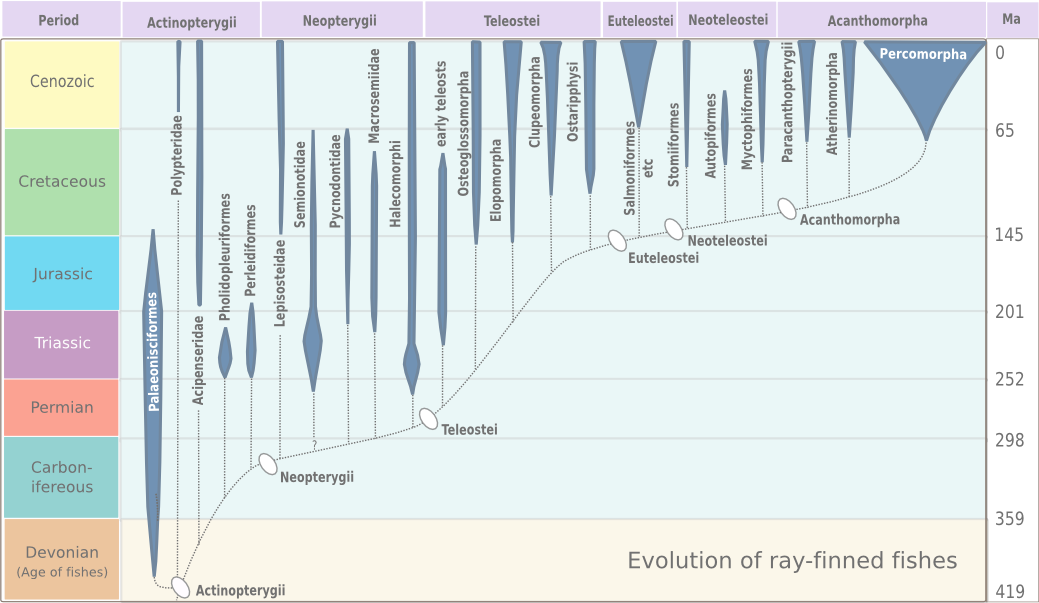Se eu tenho muito mais que 1 trilhão de amostras fosseis de uma biodiversidade que viveu supostamente em 500 milhões de anos , eu deveria ter estas amostras revelando uma PROPORÇÃO do que vemos na biodiversidade atual, considerando inclusive as especies de maior sucesso reprodutivo que deveriam estar proporcionalmente em maior numero de repetições, mas sem ausentar proporção das de menor numero de especies , pois que estas existiam tb e todas elas tiveram oportunidade de se tornar fosseis, sobretudo diante de grandes sedimentações e sepultamentos repentinos que grandes camadas sedimentares, provocadas por movimentos de magnitude global, gerariam nos diversos mega-eventos catastróficos admitidos como geradores de extinção em massa na terra, sepultando todo o tipo de espécies. Inclusive existem camadas contendo iridio e fosseis , demonstrando conjugação íntima entre fossilização e queda de asteroides.
LOGO, se encontro em trilhões de amostras apenas 250 mil especies, então , só posso concluir que a evolução, a especiação, a diferenciação pelo menos morfológica, NÃO EXISTIU no registro fossil, ou existiu, em um grau ÍNIFIMO, num padrão evolutivo próximo ao zero.
Isso combina muito mais com o modelo criacionista que defende poucos ancestrais basicos que foram na sua maioria sepultados , gerando a biodiversidade atual (milhões de diferenciadas especies) que sobreviveram as grandes catastrofes
OU SEJA,
A evolução combate a evolução
A evolução convalida o criacionismo bíblico
"I am developing a thesis that needs a general estimate of taxonomic families and species in each geological period, as well as a taxonomic estimation of recent fossil contrasting with ancient fossils, using morphological criteria. I checked with several Brazilian and foreign teachers and still don't have this information. If you can help me with these data and others that you consider good for this kind of research, so that I can publicize it, I would be pleased.
Dr Wise, I would like to fill the grafic placing the average of the families, gender, species in each geological period (or stratified laser in a criacionist view)
A idéia central do meu trabalho, é demonstrar que não houve muita variabilidade taxonômica no registro fossil, e que a irradiação especiativa começa a ser registrada nas camadas mais recentes e na biodiversidade atual, demonstrando assim uma certa estabilidade nas formas de vida no registro fossil, contrastada com as instabilidades, necessidade de adaptação representada pelo aumento e radiação especiativa da vida mais atual
The central idea of my work is to demonstrate that there was not much taxonomic variability in the fossil record, and that irradiation speciative (evolutionary radiation) begins to be recorded in the most recent layers and int the current biodiversity, thus demonstrating a degree of stability in life forms in the fossil record, contrasted with the instability, necessity adaptation represented by the increase of radiation and more the recent especiativa radiation of current life
Um outro objetivo é enxergar no evento especiativo como um marcador de tempo e circunstâncias (pressões seletivas, derivas, etc), onde arbustos no nivel especies pobres indicam ausencia de pressão e evolução, e arbustos ricos e diversificados indicam especiação atuando , demonstrando assim o tempo antediluviano e o tempo pós diluviano.
Another objective is to see in the especiativo event how a marker of time and circumstances (selective pressures, drift, etc.), where shrubs at the level of poor species indicate absence of pressure and evolution, and rich and diversified shrubs indicate speciation in action, thus reflecting the antediluvian and post flood times.
with the instability, necessity adaptation represented by the increase of radiation and more the recent especiativa radiation of current life
Um outro objetivo é enxergar no evento especiativo como um marcador de tempo e circunstâncias (pressões seletivas, derivas, etc), onde arbustos no nivel especies pobres indicam ausencia de pressão e evolução, e arbustos ricos e diversificados indicam especiação atuando , demonstrando assim o tempo antediluviano e o tempo pós diluviano.
Another objective is to see in the especiativo event (evolutionary radiation) how a marker of time and circumstances (selective pressures, drift, etc.), where shrubs at the level of poor species indicate absence of pressure and evolution, and rich and diversified shrubs indicate speciation in action, thus reflecting the antediluvian and post flood times.
| Period or Layer | Phyla | Family | Gender | Species | PERCENTAGE OF LOSS OF FAMILIES IN mass extinctions | PERCENTAGE OF SPECIES extinct in the EVENTS OF MASS EXTINCTION |
| Ediacaran | ||||||
| Cambrian | ||||||
| Ordovician | ||||||
| Silurian | ||||||
| Devonian | ||||||
| Carboniferous | ||||||
| Permian | ||||||
| Triassic | ||||||
| Jurassic | ||||||
| Cretaceous | ||||||
| Tertiary | ||||||
| quaternary | ||||||
|
Total Taxonomic Fossil Ediacaran until the end of the Triassic |
||||||
|
Total Taxonomic Fossil Ediacaran to the Pleistocene |
||||||
| Points especiativa irradiation | ||||||
|
Total Taxonomic recent fossils (Pleistocene until today) |
||||||
|
Total Current Taxonomic Biodiversity of marine species |
||||||
|
Total Current Taxonomic Biodiversity of terrestrial species |
FONTE:
Dan de Barna
http://www.icb.ufmg.br/
http://





